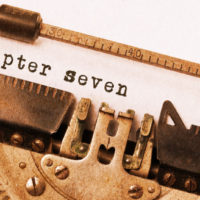How Does an Asset Chapter 7 Bankruptcy Work?

Chapter 7 bankruptcy is sometimes referred to as liquidation bankruptcy, since this type of filing gives the bankruptcy trustee the authority to make the debtor’s assets liquid and to use the resulting cash to compensate creditors. Many potential Chapter 7 filers are scared that they’ll be forced into selling personal treasures or necessities during their bankruptcy case. While you may not be forced to relinquish any property at all when filing under Chapter 7, some liquidation can end up providing long-term benefits. Read on to learn more about liquidation in Chapter 7, and speak with an experienced California bankruptcy attorney for more information.
When property can be liquidated
More often than not, those filing for bankruptcy under Chapter 7 are filing what are known as no-asset bankruptcies. These debtors may own items such as a car or house, but their attorney has been able to find exemptions to cover the property they own. In these cases, the bankruptcy trustee does not have the right to liquidate any of the debtor’s property. If the debtor has used all their exemptions but owns other property, then that property may be sold or otherwise turned into cash by the bankruptcy trustee. When the property is sold, the trustee takes a percentage as a fee for their efforts and pays the rest to your creditors in order of priority.
Even if the trustee has the right to liquidate an asset, it doesn’t mean that they will. Some assets are too time-consuming or risky to be worth liquidating. For example, if your family owns a 10-year-old purebred dog as a pet, this would technically be considered an asset, but selling a senior dog is unlikely to provide a sufficiently-large net profit to be worth selling. Another example is used clothing. While some of your personal clothing may not be covered by an exemption, it is unlikely to be worth the trustee’s time to sell.
Benefits of liquidation
Perhaps you do own a valuable item that is easily marketable, such as property you’ve inherited or that you purchased outright during a previous phase of your life. This may be an item that you like but don’t need to own, such as a boat or piece of artwork. Liquidation of this type of property by the trustee could provide you with a benefit.
If you’d already been considering selling the item but hadn’t wanted to do the necessary footwork, then letting the trustee do it for you will save you the trouble. Plus, the proceeds from the sale could go towards debts you’d otherwise have to pay out of pocket. Proceeds from liquidated assets will be paid first to any priority debts you have. Priority debts include student loans, unpaid taxes, and unpaid spousal support. These debts aren’t eliminated in Chapter 7 bankruptcy, meaning that you’ll still be forced to pay them back after your Chapter 7 case is over. Using proceeds from liquidated assets to pay down these debts will reduce the amount you’ll need to pay in the future.
If you’re facing a growing amount of consumer debt in Southern California and need help getting your financial life under control, reach out to the knowledgeable Ventura consumer law and bankruptcy attorneys at Rounds & Sutter for help at 805-650-7100.